Books by Fellows
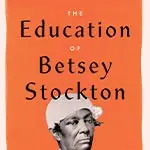
The life of Betsey Stockton (ca. 1798–1865) is a remarkable story of a Black woman’s journey from slavery to emancipation, from antebellum New Jersey to the Hawai‘ian Islands, and from her own self-education to a lifetime of teaching others—all told against the backdrop of the early United States’ pervasive racism. It’s a compelling chronicle of a critical time in American history and a testament to the courage and commitment of a woman whose persistence grew into a potent form of resistance.
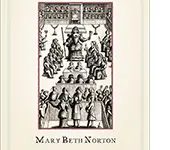
In Separated by Their Sex, Mary Beth Norton offers a bold genealogy that shows how gender came to determine the right of access to the Anglo-American public sphere by the middle of the eighteenth century.
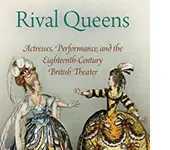
In eighteenth-century England, actresses were frequently dismissed as mere prostitutes trading on their sexual power rather than their talents. Yet they were, Felicity Nussbaum argues, central to the success of a newly commercial theater. Urban, recently moneyed, and thoroughly engaged with their audiences, celebrated actresses were among the first women to achieve social mobility, cultural authority, and financial independence.
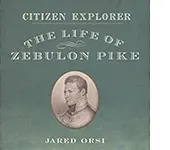
It was November 1806. The explorers had gone without food for one day, then two. Their leader, not yet thirty, drove on, determined to ascend the great mountain. Waist deep in snow, he reluctantly turned back. But Zebulon Pike had not been defeated. His name remained on the unclimbed peak-and new adventures lay ahead of him and his republic. In Citizen Explorer, historian Jared Orsi provides the first modern biography of this soldier and explorer, who rivaled contemporaries Meriwether Lewis and William Clark.
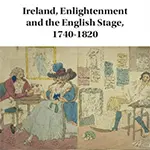
The theatre was a crucial forum for the representation of Irish civility and culture for the 18th-century English audience. Irish actors and playwrights, operating both as individuals and within networks, were remarkably popular and potent during this period, especially in London. As ideas of Enlightenment percolated throughout Britain and Ireland, Irish theatrical practitioners—actors, managers, playwrights, critics, and journalists—exploited a growing receptivity to Irish civility, and advanced a patriot agenda of political and economic autonomy.

Most of our theories of laughter are not concerned with laughter. Rather, their focus is the laughable object, whether conceived of as the comic, the humorous, jokes, the grotesque, the ridiculous, or the ludicrous. In Laughter, Anca Parvulescu proposes a return to the materiality of the burst of laughter itself. She sets out to uncover an archive of laughter, inviting us to follow its rhythms and listen to its tones.
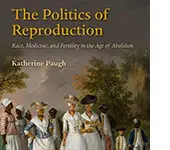
The fertility of Afro-Caribbean women's bodies was at the crux of visions of economic success elaborated by many British politicians, planters, and doctors during the age of abolition. Reformers hoped that a home-grown labor force would obviate the need for the Atlantic slave trade. By establishing the ubiquity of visions of fertility and subsequent economic growth during the age of abolition, The Politics of Reproduction sheds fresh light on the oft-debated question of whether abolitionism was understood by contemporaries as economically beneficial to the British Empire.
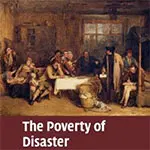
Tawny Paul examines the role that debt insecurity played within society and the fragility of the credit relations that underpinned commercial activity, livelihood, and social status.
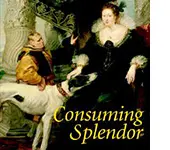
A fascinating study of the ways in which the consumption of luxury goods transformed social practices, gender roles, royal policies, and the economy in seventeenth-century England. Linda Levy Peck charts the development of new ways of shopping; new aspirations and identities shaped by print, continental travel, and trade to Asia, Africa, the East and West Indies; new building, furnishing, and collecting; and the new relationship of technology, luxury and science.
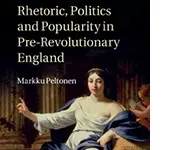
Rhetoric, Politics and Popularity in Pre-Revolutionary England provides a completely new account of the political thought and culture of Elizabethan and early Stuart England. It examines the centrality of humanist rhetoric in the pre-revolutionary educational system and its vital contribution to the political culture of the period.
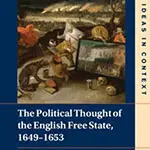
Markku Peltonen explores the arguments in defense of the English free state and demonstrates the profound importance of the republican period.
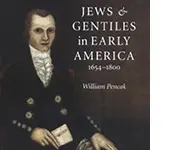
Jews and Gentiles in Early America offers a uniquely detailed picture of Jewish life from the mid-seventeenth century through the opening decades of the new republic. Though the first national census in 1790 counted barely three thousand Jews, the Jewish community was nevertheless far more important in the history of early America than their numbers suggest, author William Pencak reveals in this fascinating chronicle of an often-overlooked aspect of American Jewish history.

Between 1640 and 1660, England, Scotland, and Ireland faced civil war, invasion, religious radicalism, parliamentary rule, and the restoration of the monarchy. Carla Gardina Pestana offers a sweeping history that systematically connects these cataclysmic events and the development of the infant plantations from Newfoundland to Surinam.

Sunk in a British ambush in 1708, the Spanish galleon San José was rumored to have one of the richest cargos ever lost at sea. Though treasure hunters have searched for the wreck's legendary bounty, no one knows exactly how much went down with the ship or exactly where it sank. Here, Carla Rahn Phillips confronts the legend of lost treasure with documentary records of the San José's final voyage and suggests that the loss of silver and gold en route to Spain paled in comparison to the loss of the six hundred men who went down with the ship.
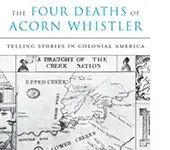
Who was Acorn Whistler, and why did he have to die? A deeply researched analysis of a bloody eighteenth-century conflict and its tangled aftermath, The Four Deaths of Acorn Whistler unearths competing accounts of the events surrounding the death of this Creek Indian.
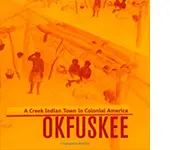
A work of original scholarship and compelling sweep, Okfuskee is a community-centered Indian history with an explicitly comparativist agenda. Joshua Piker uses the history of Okfuskee, an eighteenth-century Creek town, to reframe standard narratives of both Native and American experiences.

An intensely personal story crossed with a political potboiler, Left in the Dust is a unique and passionate account of the city of Los Angeles's creation, cover-up and inadequate attempts to repair a major environmental catastrophe.
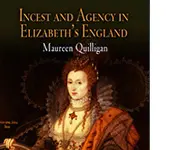
Maureen Quilligan explores the remarkable presence in the Renaissance of what she calls "incest schemes" in the books of a small number of influential women who claimed an active female authority by writing in high canonical genres and who, even more transgressively for the time, sought publication in print.

During the eighteenth century English defendants, victims, witnesses, judges, and jurors spoke a language of the mind. With their reputations or lives at stake, men and women presented their complex emotions and passions as grounds for acquittal or mitigation of punishment. Inside the courtroom the language of excuse reshaped crimes and punishments, signalling a shift in the age-old negotiation of mitigation. Outside the courtroom the language of the mind reflected society's preoccupation with questions of sensibility, responsibility, and the self.

The remarkable astronomical discoveries made by Galileo with the new telescope in 1609-10 led to his famous disputes with philosophers and religious authorities, most of whom found their doctrines threatened by his evidence for Copernicus's heliocentric universe. In this book, Eileen Reeves brings an art historical perspective to this story as she explores the impact of Galileo's heavenly observations on painters of the early seventeenth century.
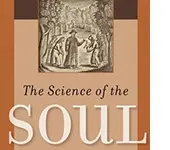
The Science of the Soul challenges long-standing notions of Puritan provincialism as antithetical to the Enlightenment. Sarah Rivett demonstrates that, instead, empiricism and natural philosophy combined with Puritanism to transform the scope of religious activity in colonial New England from the 1630s to the Great Awakening of the 1740s.

After the end of the War of Austrian Succession in 1748, thousands of unemployed and sometimes unemployable soldiers and seamen found themselves on the streets of London ready to roister the town and steal when necessary. In this fascinating book Nicholas Rogers explores the moral panic associated with this rapid demobilization.
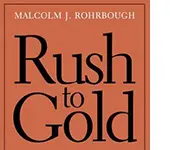
The California Gold Rush began in 1848 and incited many "wagons west." However, only half of the 300,000 gold seekers traveled by land. The other half traveled by sea. And it's the story of this second group that interests Malcolm Rohrbough in his authoritative new book, The Rush to Gold.
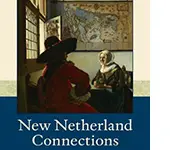
Susanah Shaw Romney locates the foundations of the early modern Dutch empire in interpersonal transactions among women and men. As West India Company ships began sailing westward in the early seventeenth century, soldiers, sailors, and settlers drew on kin and social relationships to function within an Atlantic economy and the nascent colony of New Netherland.

Botanical Poetics brings together studies of ecology, science, literary form, and the material text to explore how these developments transformed early modern conceptions of nature, poetic language, and the printed book. Drawing on little-studied titles in horticulture and popular print alongside poetry by Shakespeare, Spenser, and others, Rosenberg reveals how early modern print used a botanical idiom to anticipate histories of its own reading and reception, whether through replanting, uprooting, or fantasies of common property and proliferation. While our conventional narratives of English literary culture in this period see reading as an increasingly private practice, and literary production as more and more of an authorial domain, Botanical Poetics uncovers an alternate tradition: of commonplaces and common ground, of slips of herbs and poetry circulated, shared, and multiplied.
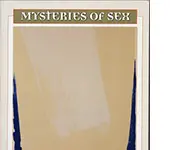
In a sweeping synthesis of American history, Mary Ryan demonstrates how the meaning of male and female has evolved, changed, and varied over a span of 500 years and across major social and ethnic boundaries. She traces how, at select moments in history, perceptions of sex difference were translated into complex and mutable patterns for differentiating women and men.

This volume focuses on the special role that Jews played in reshaping the racial landscape of southern California in the twentieth century. Rather than considering this issue in terms of broad analyses of organizations or communities, each contribution instead approaches it by examining the activity of a single Jewish individual, and how he or she navigated the social terrain of a changing southern California.
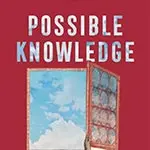
Working across a range of genres, Sarkar theorizes “possible knowledge” as an intellectual paradigm crafted in and through literary form. Sixteenth- and seventeenth-century writers such as Spenser, Bacon, Shakespeare, Cavendish, and Milton marshalled the capacious concept of the “possible,” defined by Philip Sidney as what “may be and should be,” to construct new theories of physical and metaphysical reality.
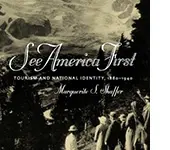
In See America First, Marguerite Shaffer chronicles the birth of modern American tourism between 1880 and 1940, linking tourism to the simultaneous growth of national transportation systems, print media, a national market, and a middle class with money and time to spend on leisure.
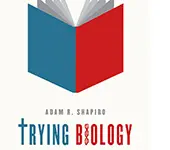
In Trying Biology, Adam R. Shapiro convincingly dispels many conventional assumptions about the 1925 Scopes "monkey" trial. Most view it as an event driven primarily by a conflict between science and religion. Countering this, Shapiro shows the importance of timing: the Scopes trial occurred at a crucial moment in the history of biology textbook publishing, education reform in Tennessee, and progressive school reform across the country.
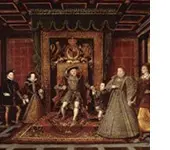
In this book a leading historian reveals how Tudor kings and queens sought to enhance their authority by presenting themselves to best advantage. Kevin Sharpe offers the first full analysis of the verbal and visual representations of Tudor power, embracing disciplines as diverse as art history, literary studies, and the history of consumption and material culture.
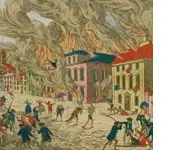
From the Stono Rebellion in 1739 to the Haitian Revolution of 1791 to Nat Turner's Rebellion in 1831, slave insurrections have been understood as emblematic rejections of enslavement, the most powerful and, perhaps, the only way for slaves to successfully challenge the brutal system they endured. In The World That Fear Made, Jason T. Sharples orients the mirror to those in power who were preoccupied with their exposure to insurrection.
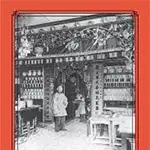
In this intricately crafted history, Tamara Venit Shelton chronicles the dynamic systems of knowledge, therapies, and materia medica crossing between China and the United States from the eighteenth century to the present.
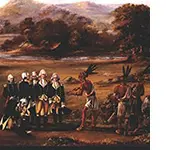
The histories told about American Indian and European encounters on the frontiers of North America are usually about cultural conflict. This book takes a different tack by looking at how much Indians and Europeans had in common. In six chapters, this book compares Indian and European ideas about land, government, recordkeeping, international alliances, gender, and the human body.
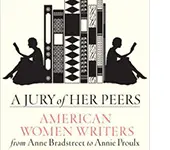
An unprecedented literary landmark: the first comprehensive history of American women writers from 1650 to the present. In a narrative of immense scope and fascination, here are more than 250 female writers, including the famous—Harriet Beecher Stowe, Dorothy Parker, Flannery O'Connor, and Toni Morrison, among others—and the little known, from the early American bestselling novelist Catherine Sedgwick to the Pulitzer Prize-winning playwright Susan Glaspell.
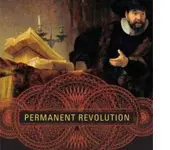
A brilliant assault on many of our deepest assumptions, Permanent Revolution argues that far from being driven by a new strain of secular philosophy, the British Enlightenment is a story of transformation and reversal of the Protestant tradition from within.
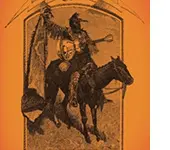
Through much of the 20th century, federal policy toward Indians sought to extinguish all remnants of native life and culture. That policy was dramatically confronted in the late 1960s when a loose coalition of hippies, civil rights advocates, Black Panthers, unions, Mexican-Americans, Quakers and other Christians, celebrities, and others joined with Red Power activists to fight for Indian rights. In Hippies, Indians and the Fight for Red Power, Sherry Smith offers the first full account of this remarkable story.
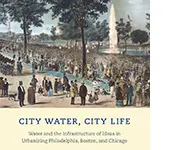
A city is more than a massing of citizens, a layout of buildings and streets, or an arrangement of political, economic, and social institutions. It is also an infrastructure of ideas that are a support for the beliefs, values, and aspirations of the people who created the city. In City Water, City Life, celebrated historian Carl Smith explores this concept through an insightful examination of the development of the first successful waterworks systems in Philadelphia, Boston, and Chicago between the 1790s and the 1860s.
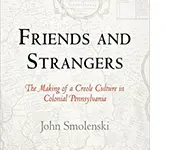
In Friends and Strangers, John Smolenski argues that Pennsylvania's early history can best be understood through the lens of creolization—the process by which Old World habits, values, and practices were transformed in a New World setting. Unable simply to transplant English political and legal traditions across the Atlantic, Quaker leaders gradually forged a creole civic culture that secured Quaker authority in an increasingly diverse colony.
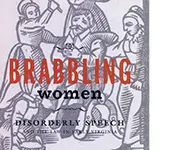
By examining women's use of language, Terri L. Snyder demonstrates how women resisted and challenged oppressive political, legal, and cultural practices in colonial Virginia. Contending that women's voices are heard most clearly during episodes of crisis, Snyder focuses on disorderly speech to illustrate women's complex relationships to law and authority in the seventeenth century.
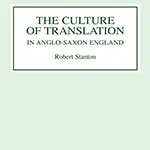
Translation was central to Old English literature as we know it. Most Old English literature, in fact, was either translated or adapted from Latin sources, and this is the first full-length study of Anglo-Saxon translation as a cultural practice. This 'culture of translation' was characterized by changing attitudes towards English: at first a necessary evil, it can be seen developing increasing authority and sophistication.

A revisionist history of the idea of progress reveals an unknown story about European engagement with Chinese science.
The Enlightenment gave rise not only to new ideas of progress but consequential debates about them. Did distant times and places have anything to teach the here and now? Voltaire could believe that they did; Hegel was convinced that they did not. Early philosophes praised Chinese philosophy as an enduring model of reason. Later philosophes rejected it as stuck in the past. Seeking to vindicate ancient knowledge, a group of French statesmen and savants began a conversation with the last great scholar of the Jesuit mission to China. Together, they drew from Chinese learning to challenge the emerging concept of Western advancement.
A Global Enlightenment traces this overlooked exchange between China and the West to make compelling claims about the history of progress, notions of European exceptionalism, and European engagement with Chinese science. To tell this story, Alexander Statman focuses on a group of thinkers he terms “orphans of the Enlightenment,” intellectuals who embraced many of their contemporaries’ ideals but valued ancient wisdom. They studied astronomical records, gas balloons, electrical machines, yin-yang cosmology, animal magnetism, and Daoist medicine. And their inquiries helped establish a new approach to the global history of science.
Rich with new archival research and fascinating anecdotes, A Global Enlightenment deconstructs two common assumptions about the early to late modern period. Though historians have held that the idea of a mysterious and inscrutable East was inherent in Enlightenment progress theory, Statman argues that it was the orphans of the Enlightenment who put it there: by identifying China as a source of ancient wisdom, they turned it into a foil for scientific development. But while historical consensus supposes that non-Western ideas were banished from European thought over the course of the Enlightenment, Statman finds that Europeans became more interested in Chinese science—as a precursor, then as an antithesis, and finally as an alternative to modernity.
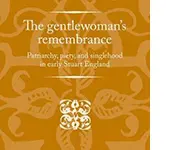
A microhistory of a never-married English gentlewoman named Elizabeth Isham, this book centres on an extremely rare piece of women's writing - a recently discovered 60,000-word spiritual autobiography held in Princeton's manuscript collections that she penned around 1639.
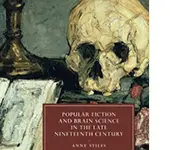
This book examines the cultural impact of neurological experiments on late-Victorian Gothic romances by Robert Louis Stevenson, Bram Stoker, H. G. Wells and others. Novels like Dracula and Dr Jekyll and Mr Hyde expressed the deep-seated fears and visionary possibilities suggested by cerebral localization research, and offered a corrective to the linearity and objectivity of late Victorian neurology.
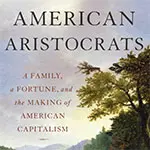
American Aristocrats is a multigenerational biography of the Andersons of Kentucky, a family of strivers who passionately believed in the promise of America. Drawing on a vast store of Anderson family records, Stout reconstructs their journey to great wealth as they rode out the cataclysms of their time, from financial panics to the Civil War and beyond.
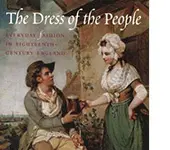
John Styles reveals that ownership of new fabrics and new fashions was not confined to the rich but extended far down the social scale to the small farmers, day laborers, and petty tradespeople who formed a majority of the population. The author focuses on the clothes ordinary people wore, the ways they acquired them, and the meanings they attached to them, shedding new light on all types of attire and the occasions on which they were worn.
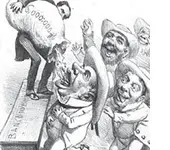
Nineteenth-century Brazil's constitutional monarchy credibly committed to repay sovereign debt, borrowing repeatedly in international and domestic capital markets without default. Yet it failed to lay the institutional foundations that private financial markets needed to thrive. This study shows why sovereign creditworthiness did not necessarily translate into financial development.
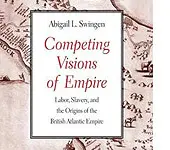
Abigail L. Swingen’s insightful study provides a new framework for understanding the origins of the British empire while exploring how England’s original imperial designs influenced contemporary English politics and debates about labor, economy, and overseas trade.
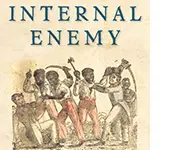
Frederick Douglass recalled that slaves living along Chesapeake Bay longingly viewed sailing ships as "freedom's swift-winged angels." In 1813 those angels appeared in the bay as British warships coming to punish the Americans for declaring war on the empire. Over many nights, hundreds of slaves paddled out to the warships seeking protection for their families from the ravages of slavery. The runaways pressured the British admirals into becoming liberators. As guides, pilots, sailors, and marines, the former slaves used their intimate knowledge of the countryside to transform the war.
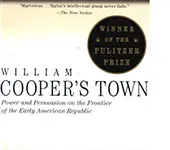
An innovative work of biography, social history, and literary analysis, this Pulitzer Prize-winning book presents the story of two men, William Cooper and his son, the novelist James Fennimore Cooper, who embodied the contradictions that divided America in the early years of the Republic. Taylor shows how Americans resolved their revolution through the creation of new social forms and new stories that evolved with the expansion of our frontier.